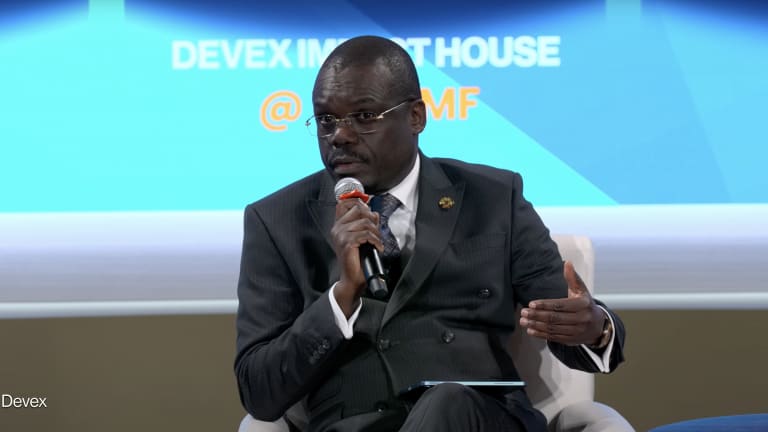
During a press conference Thursday, Africa Centres for Disease Control and Prevention Director John Nkengasong outlined a strategy that will enable all African nations to roll out vaccines that require ultracold temperature storage.
“All African countries, all 55 of them, can receive any vaccine now,” he said, adding that he wishes to dispel the idea that some African nations aren’t ready to start vaccination campaigns.
The Pfizer-BioNTech COVID-19 vaccine currently has the most difficult storage needs of any of the vaccines, with a recommended storage temperature of minus 70 degrees Celsius (minus 94 degrees Fahrenheit), which has raised concerns that it won’t be a realistic fit for a rollout in most African settings.
The Moderna vaccine also needs ultralow temperatures, but the use of this vaccine is limited to the United States, Nkengasong said. The AstraZeneca vaccine only needs standard refrigeration temperatures.
Nkengasong called on countries to use an urban-centered approach, in which the government purchases ultracold storage freezers for a handful of hospitals around a capital city.
The man behind Africa's COVID-19 response
Four years ago, Cameroonian virologist John Nkengasong moved to Ethiopia from the U.S. to turn what was then only a vision into what is now the leading institution working to manage the continent's pandemic response: the Africa CDC.
Each freezer costs about $15,000, which is “very, very doable,” according to Nkengasong. These freezers are available to countries through the Africa Medical Supplies Platform. Both the COVAX Facility and the World Bank are working with countries to finance their vaccine rollouts.
Using Ethiopia as an example, he said that the first step would be to create a vaccination coordinating unit at the Ethiopian Public Health Institute, which already has cold chain capacity.
The government could then create roughly 10 vaccination points at hospitals and clinics across the capital city of Addis Ababa, with one or two ultracold freezers available at each site. About 20 health care workers at each site could then be trained in areas such as record-keeping and the injection of vaccines, while the government mobilizes communities around the importance of receiving vaccines.
This strategy is beneficial because cases of COVID-19 across the continent tend to be concentrated in urban areas.
“If we do that, then we begin to break the backbone of the infection,” Nkengasong said, adding that it would take about two months to reach 60% of the population with vaccinations in a city of about 5 million, such as Addis Ababa.
Key airlines on the continent, including Ethiopian Airlines and Kenya Airways, are now equipped to transport vaccines at ultracold temperatures, he said.
Nkengasong advised countries against distributing ultracold freezers throughout their territories, especially in rural areas. “It would not be strategic, and it would not be prudent,” he said.
“We should start with a phased approach where you start with capital cities, and you can equip them with ultracold chains … and then drag the population towards those vaccination centers, and then subsequently, as new versions of vaccines emerge, we spread it across the entire country,” he said, adding that vaccines that require less stringent storage conditions, such as the AstraZeneca vaccine, could be rolled out nationwide.
A strategy like this is important for the continent to move quickly, using a combination of vaccines where they are feasible, said World Health Organization Africa Regional Director Matshidiso Moeti during a press conference.
African Union secures first batch of COVID-19 vaccines
The African Union’s vaccine acquisition task force has secured 270 million COVID-19 vaccines for African nations, marking the first batch obtained for continentwide vaccination.
However, Thabani Maphosa, managing director of country programs at Gavi, the Vaccine Alliance, warned that when using this strategy, it’s important to ensure the gap between vaccinating urban and rural populations is not too large.
“The equity agenda must not be forgotten in that process,” he said.
Last week, the African Union announced that it secured 270 million doses of vaccines for African nations to buy, including the Pfizer vaccine. Preorders have already started. On Friday the WHO announced a deal with Pfizer-BioNTech for 40 million doses of its vaccine to be supplied to the COVAX facility at a not-for-profit price.
Global discussions are also ongoing for the donation of vaccines by wealthier countries that have reserved extra quantities.
Jenny Lei Ravelo contributed reporting.
Update, Jan 22, 2021: This article has been updated with information on the agreement between Pfizer-BioNTech and the COVAX facility.



